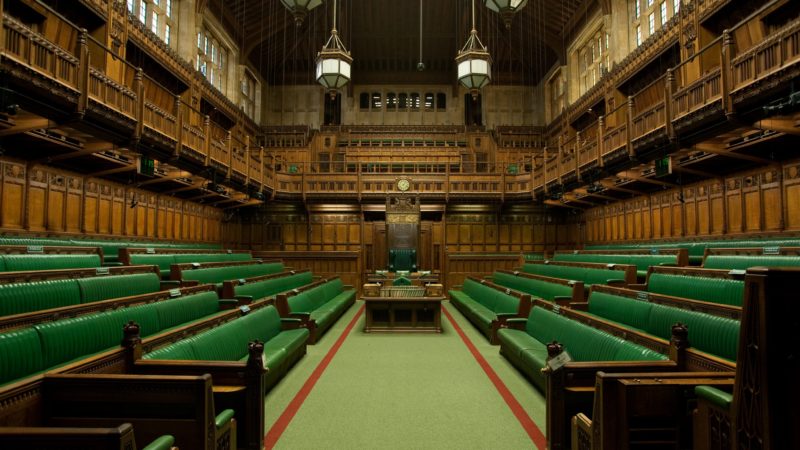
Campaigners have warned that plans for further devolution and an elected senate will not deliver Labour’s constitutional aims of a more democratic, equal and united UK without the adoption of proportional representation (PR) for general elections.
Published this morning by Labour for a New Democracy, which is campaigning for the adoption of PR to become party policy at Labour’s annual conference this month, Everything but the Commons found that comparable countries with a “winner-takes-all electoral system” have seen a collapse in satisfaction with democracy.
This finding, the report argued, can be found even where those countries have advanced levels of devolution, a directly elected senate or both, and that they also typically experience high levels of economic inequality. It found that the use of PR correlates with better performances in terms of economic equality.
National coordinator for Labour for a New Democracy Joe Sousek told LabourList this morning: “Full-fat devolution or an elected senate are often floated as the way to build a more democratic, more equal country.
“But the fact is, there’s not a single example in any comparable country of these measures coinciding with high satisfaction with democracy and good economic equality – except when they have also been accompanied by PR for general elections.”
The report published today stressed that Labour’s commitment to the survival of the UK itself provides an “urgent existential case for electoral reform”, citing First Minister Mark Drakeford’s comments that the first-past-the-post system “will only feed further the fissures which threaten to prise the UK apart”.
Keir Starmer announced the launch of a constitutional commission in 2020 to spread “power, wealth and opportunity” out of Westminster. The 2022 national policy forum report stated that it will be published in “early autumn” and says that “MPs, Welsh Labour, Scottish Labour, metro mayors and local government” have been consulted.
Launching the commission, the Labour Leader said it would be the “boldest project Labour has embarked on for a generation” and that it would “involve all parts of the labour movement” as well as civil society and the public.
The commission has been headed by former Labour Prime Minister Gordon Brown, who made the case ahead of its launch for a “radical alternative to nationalism” in the form of a “constitutional revolution” to rescue the union.
It is now expected to also comment on levelling up, House of Lords reform and standards in public life as well as being expected to recommend that local councils be allowed to initiate legislation, bypassing the Treasury.
The report published today argued that that PR electoral systems give voters a stronger voice across the UK, highlighting that 93% of Scottish voters have an MSP they voted for in the Scottish parliament, while just 46% of Scottish voters have an MP they voted for in Westminster.
Electoral Reform Society chief executive Darren Hughes said today that Labour for a New Democracy’s findings are “beyond doubt”, adding: “Devolved parliaments have renewed democracy at a devolved level but they have done nothing to improve people’s satisfaction with UK democracy as a whole.
“This is no surprise given that voters have far more of an effective vote in the more representative Welsh and Scottish parliaments than they do at Westminster.”
Labour will hold its annual conference later this month. Exclusive polling by Survation for LabourList, published last week, found that more than 70% of respondents said the party should back a move to PR, compared to 22% opposed.
Support for PR was highest among older members, with 80% of respondents over the age of 65 backing a change in the electoral system, compared to 58% of 25- to 34-year-olds. Longer-term party members were less likely to support a move to PR; only 66% of those who joined the party prior to 2015 supported the idea.
Labour for a New Democracy national coordinator Joe Sousek said the polling “confirms the overwhelming support” for PR, adding: “The message to the leadership could not be clearer: it is time to back these calls for reform and commit Labour to delivering a fair, proportional voting system. It’s an issue that cannot be ignored.”
Labour for a New Democracy has been urging Labour members to submit a model motion to their Constituency Labour Parties (CLPs) so that it might be heard at the annual gathering in Liverpool later this month.
A motion committing Labour to supporting a switch to a PR system for electing MPs to the Commons was rejected at the party’s annual conference last September. The motion was backed by 79.5% of Constituency Labour Party delegates but fell as 95% of trade union delegates voted against.
Several trade unions affiliated to the Labour Party, including UNISON, Unite, ASLEF, the Musicians Union and the TSSA have adopted pro-PR reform stances since. The move has been welcomed as a “huge boost” by electoral reform campaigners.


More from LabourList
Read: Peter Mandelson’s ten lessons for an incoming government
‘Why Labour is right to hedge its bets on the US elections’
‘Why Starmerism isn’t Blairism – and restoring pride in towns is its key test’